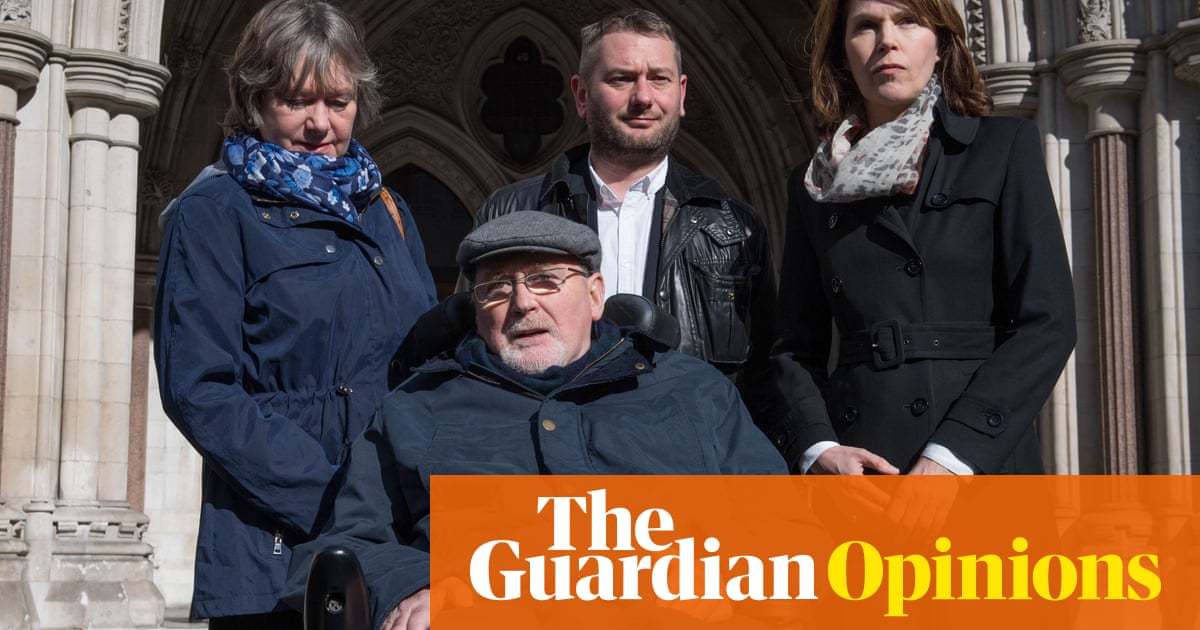
In a rare series of moves, Dutch authorities are investigating whether doctors may have committed crimes in five euthanasia cases, including the deaths of two women with advanced Alzheimer’s disease.
The investigations highlight the difficulties doctors face in handling euthanasia requests for those who later develop dementia.
Whether Dutch authorities prosecute the doctors in the two Alzheimer’s cases being investigated will likely set a course for how the increasing numbers of people with dementia who seek euthanasia will be handled.
The doctor said she was fulfilling a written request the patient made for euthanasia years earlier and that since the patient was not competent, nothing the woman said during her euthanasia procedure was relevant.
Dr. Amanda Thompsell, chair of old-age psychiatry at Britain’s Royal College of Psychiatrists, said it can be risky to assume how much a dementia patient is suffering mainly by observing them.
Posts published in “Current Event”
A committee assembled by the National Institute on Aging and the Alzheimer’s Association published a new definition whereby Alzheimer’s disease equals the pathological accumulation of amyloid plaques and neurofibrillary tangles in the brain.
Alzheimer’s disease equals plaques and tangles in brain, not symptoms, says new NIA-AA research framework.
They will be employed in studies to understand how Alzheimer’s develops, and to test treatments targeted to the aberrant biology.
“This continues our movement toward thinking about Alzheimer’s disease as a neurobiological process rather than simply different clinical stages.
Importantly, the framework aligns Alzheimer’s disease conceptually with the rest of medicine, said lead author Clifford Jack of the Mayo Clinic in Rochester, Minnesota.

The NFL is seeking the appointment of a special investigator to address what it claims is widespread fraud of its concussion settlement with former players -- another step in a growing feud between the sides.
The NFL is requesting the special investigator to assist the claim administrator and recommend sanctions.
But the process has been slower than expected because of fraud, according to the NFL.
"We have previously expressed concerns about potentially fraudulent claims and agree the appointment of a special investigator is appropriate," Seeger said.
We will make sure that former NFL players and their families receive every benefit they are entitled to under this agreement."

Old and ageist: Why so many older people have prejudices about their peers - and themselvesOld and ageist: Why so many older people have prejudices about their peers - and themselves Apr 3Residents enjoy a town square in the original dementia village, the Hogeweyk, in the Netherlands.
It's an unusual nursing home designed like a village to make life feel as normal as possible for people with advanced dementia.
It’s been 10 years since a Dutch senior housing nonprofit opened a groundbreaking nursing home for people with dementia that was designed to look and feel like a small village.
The “dementia village” quickly earned admiring stories from newspapers and television programs.
Studies supported the idea that living in the village is associated with better behavior, social interaction, and satisfaction.

An Indiana researcher co-authored the first study to look at whether or not an annual wellness visit improves the detection of cognitive impairment.
A 2011 mandate of the Affordable Care Act, ACA, added an annual wellness visit for people on Medicare that recommends detected cognitive impairments.
The study suggests care providers did not have enough guidance and found there was also noincrease in additional cognitive testing, including brain imaging.
Fowler says much of her recent research focuses on the impact of early detection of Alzheimer's.
"The interest of early detection is because we really don’t have a lot of evidence to know what are the benefits and risks of early detection," Fowler says.

By Beth Baker, Next Avenue ContributorThe estimated number of Americans with Alzheimer’s disease and other dementias has risen to 5.7 million, from 5.5 million in 2017, according to a report released today by the Alzheimer’s Association.
By 2025, the 2018 Alzheimer's Disease Facts and Figures report projects, 7.1 million Americans aged 65 and older will have Alzheimer’s, and by 2050, some 13.8 million.
Complicating the picture, many people have dementia from both Alzheimer’s and other causes, especially vascular.
The number of deaths from Alzheimer’s disease increased by 123% between 2000 and 2015, the report found, unlike other major causes of death, which are declining.
“Some of that increase is probably driven by physicians doing a better job of diagnosing Alzheimer’s disease and then listing it on the death certificate,” said Fargo.

AFA: How Federal Spending Deal Impacts Individuals with Alzheimer’sThursday, March 22, 2018 10:04 PM UTCNEW YORK, March 22, 2018 --Boost to NIA/NIH FundingThe omnibus federal spending deal, currently being considered by Congress, will deliver a $414 million funding increase for Alzheimer’s disease research at the National Institutes of Health (NIH).
Anti-Wandering LawThe spending deal will also enact Kevin and Avonte’s Law, which will deliver $10 million in federal funding over the next 5 years to support public safety programs that enable first responders to quickly locate individuals with Alzheimer’s or autism who wander away from their caregivers.
This spending package takes important steps forward in funding the fight against Alzheimer’s and helping the over 5 million Americans living with dementia and their family caregivers.
“Enacting Kevin and Avonte’s law will protect our nation’s most vulnerable families from the hazards of wandering, which is a very common and dangerous behavior among individuals with Alzheimer’s.
The deadline to achieve the primary goal of the national Alzheimer’s plan—to find a cure or more efficacious treatment by 2025— is fast approaching.

The same night a wake was held for a Rochester teen with autism who died after walking away from his school unnoticed, a federal measure to pay for tracking devices for vulnerable children and adults passed in both houses of Congress.
The legislation was included in a massive omnibus spending package that President Trump is now threatening to veto.
The measure would allow law enforcement agencies to install software to track the location of individuals with dementia, autism, or other disorders, who wear bracelets connected to a radio frequency tracking system.
Nine year old Kevin Curtis Wills wandered from home, slipped into Iowa’s Raccoon River and drowned in 2008.
Fourteen year old Avonte Oquendo wandered away from his school and drowned in New York City’s East River in 2014.

The Lewy Body Dementia Association announced today the launch of the Lewy Body Dementia Association Research Centers of Excellence.
The Lewy Body Dementia Association is an advocacy group dedicated to raising awareness and advancing research about Lewy body dementia.
In Lewy body dementia, protein deposits called Lewy bodies develop in nerve cells in the brain regions involved in thinking, memory and movement.
Patients with Lewy body dementia are seen across Mayo Clinic, and related research is performed at Mayo Clinic's Arizona, Florida and Minnesota campuses.
###About Lewy Body Dementia AssociationThe Lewy Body Dementia Association is the nation's leading voluntary health organization in raising awareness of Lewy body dementias, supporting patients, their families and caregivers, and promoting scientific advances.

Someone from Britain travels to the Dignitas clinic in Switzerland on average every eight days for an assisted death.
These death journeys are a grim option, when most people want to die at home surrounded by family and friends.
Dementia is now the leading cause of death, the first time it has caused more deaths than heart disease.
Even taking into account some possible savings in health and social care, that could cost the NHS up to £9bn a year – and this doesn’t necessarily herald some miracle cure.
All he said about our collapsing social care system was that the cost would be capped for individuals, but not who should pay instead – the young?
